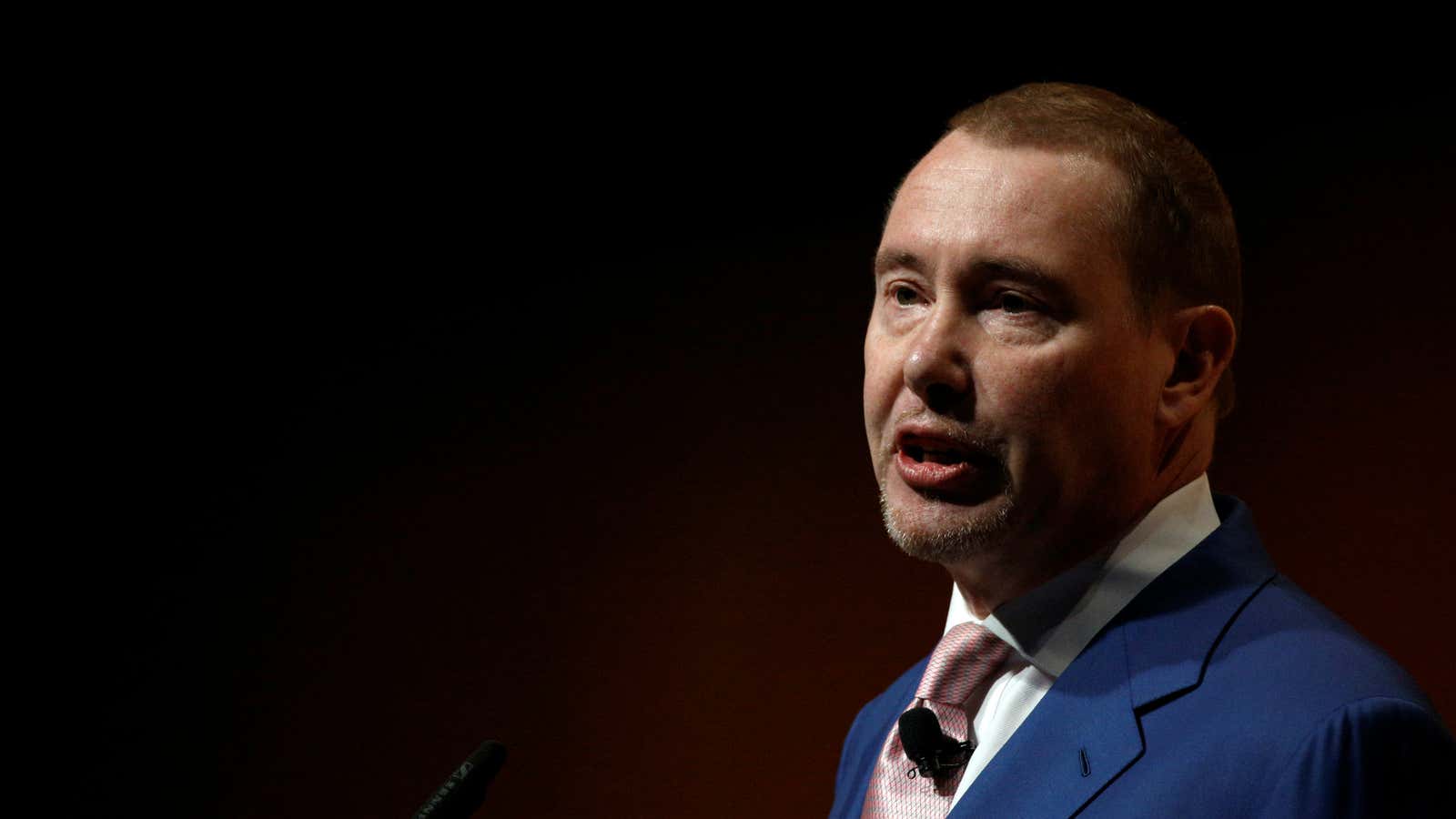There have always been doubts about whether money managers are worth their keep. Now that there’s a viable alternative—algorithms—for people who don’t want to manage their money themselves, criticism of human money managers has only grown louder.
But Jeffrey Gundlach rises to the humans’ defense in an interview with Bloomberg News:
“It’s a one-size-fits-all financial solution,” he said. “Everybody gets the same portfolio, which means everybody owns the same stock, which means when they all decide to get out you cause a crash.”
Of course he would say that! Gundlach, one of the top-ranked bond managers on the planet, is the co-founder and CEO of DoubleLine Capital, which oversees more than $100 billion, and he is a human.
Some studies indicate that active managers rarely outperform passive funds, which usually track indexes tied to broad swaths of the market and can come with very low fees. But Gundlach manages a bond fund that has handily beaten its benchmark since its inception. Arguably the biggest competitive threat to the fees he charges is not other human managers but robots.
With robo-advisors, the idea is to bring investing strategies together with algorithmic decision-making to give investors a cheaper, hopefully superior, service. Robos typically pour investors’ cash into passive instruments like exchange-traded funds. They can automate things like portfolio balancing and find ways to minimize taxes, which are generally boring services that computers are well equipped to handle.
Computerized advisors debuted about a decade ago. Early pioneers like Wealthfront are completely automated and have had success in winning over millennial savers. Others, like Betterment, now provide a type of hybrid service that includes access to a human advisor.
Assets managed by robos is growing quickly, but even the largest is pretty small compared to the overall market. Vanguard has a version of hybrid robo-advice that was launched in May 2015 and oversees about $65 billion. At least half of its users are over age 65.
Lots of big-name money managers are getting involved in the robo business now. UBS started one, and BlackRock is acquiring a stake (paywall) in a European robo after buying a US automated advisor in 2015. Estimates suggest the market could balloon to $5 trillion in the next decade, which could drive a lot of cash into passive investment and vaporize fees for many brokers and wealth managers.
While there have been flash crashes and market dislocations of late, most of the growth in robo advice has taken place since the 2008 financial crisis, so it’s yet to be determined how the platforms will perform in a severe downturn as their assets increase. It’s hard to know how the mechanics will hold up in a panic as correlations rise.
One thing for sure is that the machines are likely to be less interesting than Gundlach, who seven years ago described himself as “amazingly brilliant analytically” and as the “guy who makes it rain the desert.” If it doesn’t involve a cataclysmic market crash, the future of finance could be cheaper and more boring.
Correction: The chart in an earlier version of this article incorrectly said Vanguard’s robo service didn’t manage any assets in March 2015.
